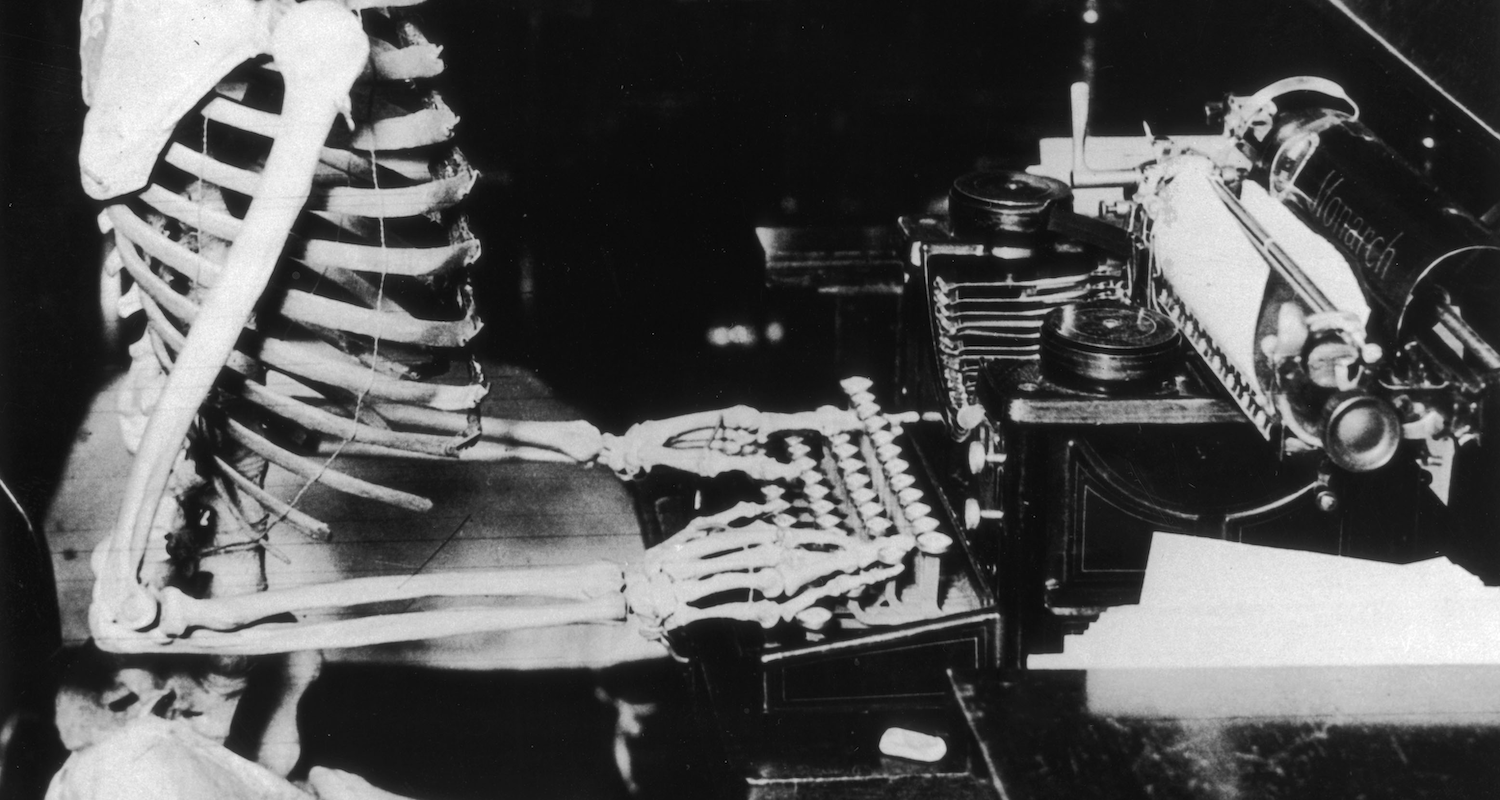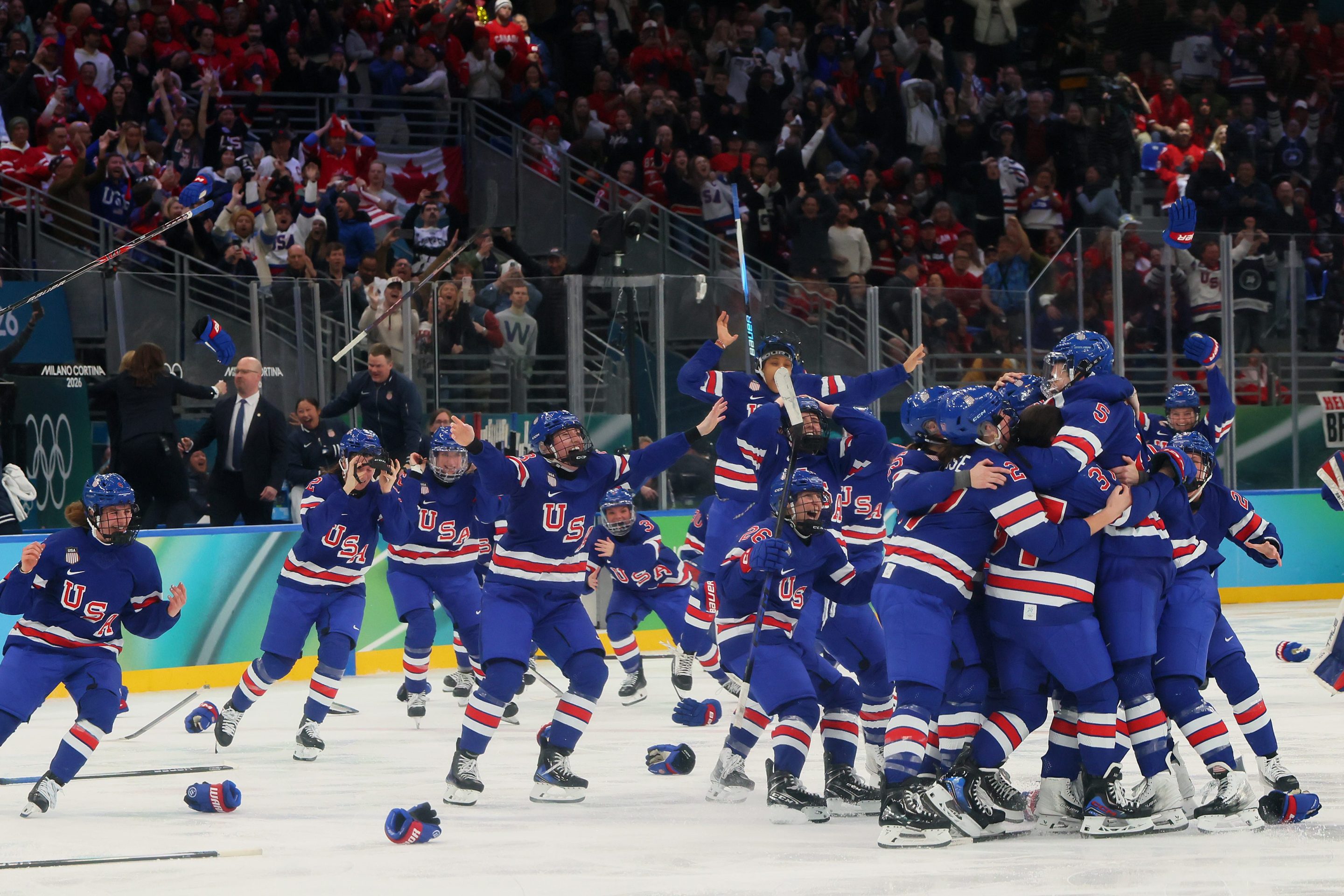On Wednesday, The Guardian reported that The Dogs, a 2022 novel by Australian writer John Hughes, contains passages copied pretty much wholesale without attribution from The Great Gatsby, and from English-language translations of Anna Karenina and All Quiet on the Western Front. Earlier he'd been found to have lifted passages from an English-language translation of The Unwomanly Face of War, a nonfiction work by the Belarusian writer Svetlana Alexievich. Lifting other writers' work and presenting it as one's own is plagiarism; it's about as straightforward as plagiarism gets.
It's also, in the case of the Gatsby, Western Front, and Anna Karenina thefts, about as brazen as plagiarism can get, short of scrawling your name over J.K. Rowling's on a hardback copy of Harry Potter and the Sorcerer's Stone and trying to sell it as your own work, to J.K. Rowling's editor, while that editor sits at a table eating lunch with J.K. Rowling. The Great Gatsby may well be the most widely read and discussed English-language novel ever written! Anna Karenina and All Quiet on the Western Front are also world-famous books that have been on public-school reading curricula for generations. Any passage of any of those three books with any particular artistic merit for the plagiarist to seek to borrow will set off instantaneous klaxons for any secondary-school humanities teacher, and that is before you even get to the armies of volunteer internet sleuths who sieve every new book through plagiarism detection just for the sheer righteous fun of discovering a fraud.
And we are not talking about stuff like "'Hello,' he said," here! We are talking about stuff like this (emphasis added):
From The Great Gatsby:
“He smiled understandingly – much more than understandingly. It was one of those rare smiles with a quality of eternal reassurance in it, that you may come across four or five times in life. It faced – or seemed to face – the whole eternal world for an instant, and then concentrated on you with an irresistible prejudice in your favour. It understood you just so far as you wanted to be understood, believed in you as you would like to believe in yourself, and assured you that it had precisely the impression of you that, at your best, you hoped to convey.”
From The Dogs:
“She smiled at me then, one of those rare smiles with a quality of eternal reassurance in it that you might come across once in your life, if you were lucky. It faced – or seemed to face – the whole eternal world for an instant, and then concentrated on you with an irresistible prejudice in your favour. It understood you just so far as you wanted to be understood, believed in you as you would like to believe in yourself, and assured you that it had precisely the impression of you that, at your best, you hoped to convey.”
Yes, yes, sure, a million monkeys on a million typewriters for a million years or whatever. But there is no plausible "Oh, F. Scott Fitzgerald and I, independently, separated by 97 years, just happened to hit on the exact same sequence of 52 words to describe a smile" defense of this. But there is, equally, no plausible "In my many readings of The Great Gatsby I happen to have absorbed, unconsciously, this 52-word passage in such perfect fidelity as to be able to reproduce it, down to the punctuation, without consulting a copy of The Great Gatsby, but also uh I have forgotten who wrote it or indeed that anybody but I wrote it" defense. There is no defense!
In any event, The Guardian published Hughes's written response to its story not long after the story itself. This response would be an abject apology, an exhaustive voluntary cataloging of his crimes against literature and publishing and basic decency, and a vow to retreat forever from the world of publication, were Hughes not, well, the kind of person who sets out to steal unearned credit for the works of others. As it is, if he'd set out to write his response to The Guardian with the explicit intent of convincing everyone who read it that he is, in fact, a prolific and knowing plagiarist and marrow-deep fraud, he could hardly have done better than his very first paragraph:
Here is a famous sentence, the opening line to One Hundred Years of Solitude: “Many years later, as he faced the firing squad, Colonel Aureliano Buendía was to remember that distant afternoon when his father took him to discover ice.” And here, from Juan Rulfo’s 1955 novel Pedro Paramo, a favourite of Marquez, this: “Years later Father Renteria would remember the night his hard bed had kept him awake, and driven him outside.” Plagiarism? A few words changed here and there. A few added, a few taken away. Influence? The distinction is not as clear-cut as the words suggest.
John Hughes, as published in The Guardian
My brain is filled with screaming. I have read this at least five times already and I am gasping for air. This is maybe the most brazenly full-of-shit thing I've ever read, or heard of. I almost admire it in its deranged audacity.
In defense of his having plugged paragraph-sized chunks of verbatim text from others' novels into his own, without attribution, the best Hughes could do was to imply that a person might consider Gabriel Garcia Marquez a plagiarist—might at the least struggle over the question of whether Marquez was guilty of having operated in some shadowy ambiguous contested space between originality and artistic theft—for not having been the first person in the history of the world to use the word "father" in a sentence about a person remembering a thing. That is not even the most incredible part of this! The most incredible part is that this shabby shit is the best he could come up with ... and he still thought he had a defense worth making.
This is psychotic! This is like getting busted walking out of the Museum of Modern Art with The Starry Night under your arm, and being like, "Ah, but was not Claude Monet equally 'guilty' when he painted Woman with a Parasol, despite other painters having previously depicted outdoors? Is this not in fact the noblest tradition of art?" I can't decide if I'm outraged at the shamelessness of this baloney or envious of the total detachment from even the most rudimentary ideas of honor and integrity that would make something like this possible. How free it must be! How free and stupid and ridiculous!
The whole thing is like this. Here's more:
Bob Dylan (himself on the receiving end of countless accusations of plagiarism) once said that all music is folk music. The history of classical music, to take one example, is the history of the appropriation of folk forms and melodies. Beethoven, Brahms, Liszt, Bartok, the list is endless. And modern musical sampling is but the latest manifestation of this long history.
Six hundred words or so into the quest to vindicate his lifting and passing off as his own whole verbatim passages from easily identifiable literary classics, this motherfucker has already managed to imply that Gabriel Garcia Marquez and Beethoven are plagiarists. There is going down with the ship and then there is ramming it into as many other ships as possible on the way, to try to make your own captaining come off better in the evaluation.
Here is the second half of the same paragraph as the one that was like, "It's cool, Franz Liszt also stole from All Quiet on the Western Front" or whatever (emphasis added):
Every artist takes. What else do we do but endlessly recycle stories? It’s a process that’s been happening since the ancient Greek tragedians first recycled the stories of Homer for the Festival of Dionysus, or Shakespeare tapped into the almost bottomless well of the Chroniclers, or novelists decided they wanted to write historical fiction. The fact is, it’s not what you take but what you do with it that counts.
OK, yes, finally, something we can agree on. What matters in this case is less that you read chunks of text from other, better writers, and more that what you did with those chunks was type them into your manuscript and try to pass them off to readers and critics as your own. I hope John Hughes never publishes another novel, nor indeed any short stories or poems. But I gotta admit, I do now kind of hope he writes 10,000 more equally tortured defenses of plagiarism. This shit is gold! What an original mind.






